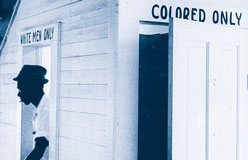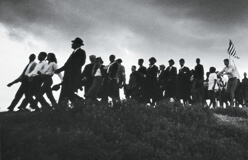In 1861, a bitter conflict broke out in the United States that threatened to tear the Union apart. During the Civil War, which lasted until 1865, the nation fought over the issue of slavery, among other things.
At that time, slavery was illegal in the North, but legal in the South. The southern states refused to change their ideas and left the Union to form their own alliance. That made them rebels against the government. On January 1, 1863, President Abraham Lincoln issued the Emancipation Proclamation. It gave more than 3 million enslaved people living in Rebel territory their freedom. The complete abolition of slavery in the U.S. came with the 13th Amendment, which was ratified in 1865. It was one of the most important acts in American history. Unfortunately, what “freedom” means depends on the world in which a person lives. After the war, many southern states passed laws limiting the rights of Black people. Why? In both the North and the South, racism—the belief that one race is superior to another—was a part of life.
After the Civil War, from 1865 to 1877, there was a period known as the Reconstruction. During this time, Federal troops occupied the defeated South to protect Black people.







